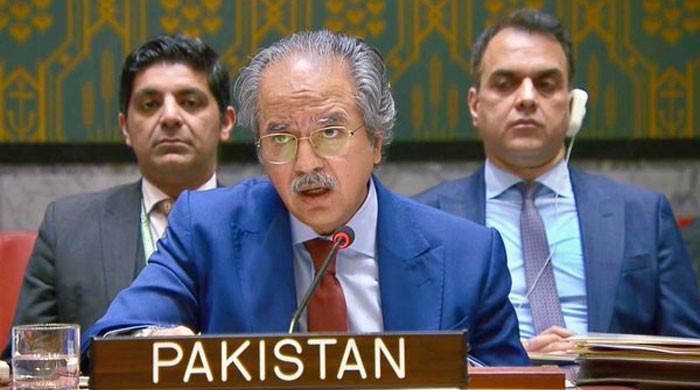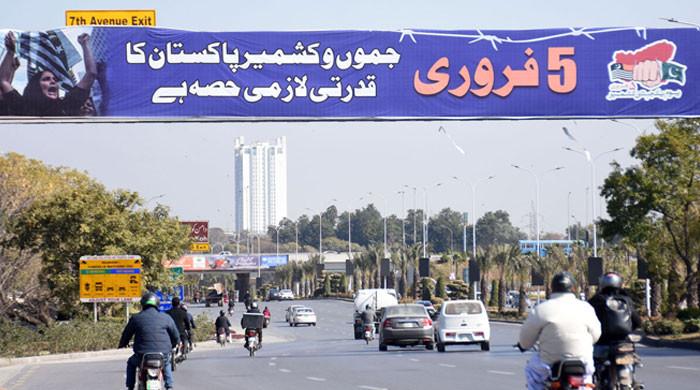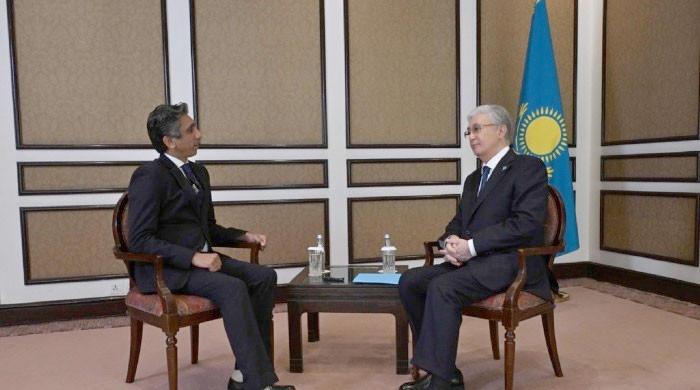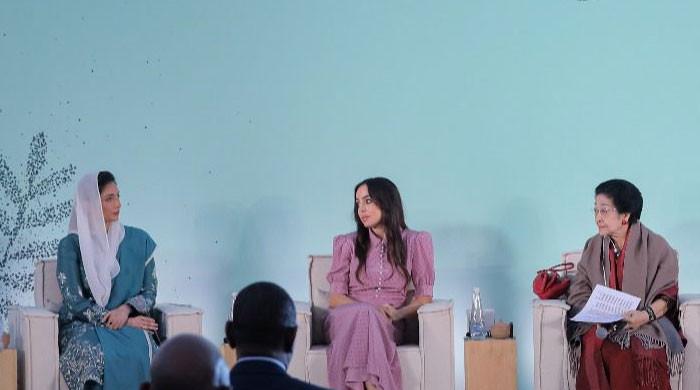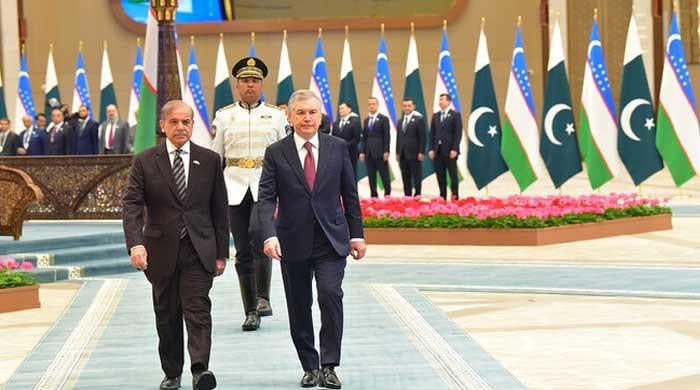'Thoughtful response': Politicians, ex-officials on Pakistan's operation
"If Iran had any concerns, it should have informed Pakistan," says Senator Sherry Rehman
January 18, 2024

- Iran's attack on Pakistani sovereignty was unexpected, says Sherry.
- Need for joint strategy to deal with terrorism, Khawaja Asif says.
- Former foreign secretary says Pakistan acted patiently.
ISLAMABAD: Pakistan Peoples Party (PPP) leader Senator Sherry Rehman Thursday termed Pakistan's response to Tehran's "unprovoked" attack a "thoughtful response", as the country's army launches strikes on terrorist hideouts operating in the Iranian territories.
Speaking with Geo News, the senior politician said Iran's attack on Pakistani sovereignty was unexpected.
After Iran launched a surprise attack in Balochistan claiming to target a militant outfit late Tuesday night, Pakistan's military targeted terrorist hideouts inside the Iranian border today.
Iran's attack, which the Foreign Office termed "unprovoked and "unacceptable", left two children dead and injured three girls, stating that it violated the country’s sovereignty.
Pakistan's retaliation, however, killed a number of terrorists during the intelligence-based operation — codenamed "Marg Bar Sarmachar", the Ministry of Foreign Affairs said in a statement today.
"This morning Pakistan undertook a series of highly coordinated and specifically targeted precision military strikes against terrorist hideouts in Siestan-o-Baluchistan province of Iran," the FO mentioned.
"If Iran had any concerns, it should have informed Pakistan," Senator Rehman insisted, highlighting the need for restraint by both countries.
She maintained that Pakistan has old ties with Iran and there is a need to improve relations. However, she also acknowledged that such skirmishes along the Pakistan-Iran border have been taking place for many years.
"It would be better if the two countries do not allow this kind of conflict to escalate further," she added.
'Fitting diplomatic and military steps'
Former prime minister Shehbaz Sharif asserted that Pakistan's reaction was to ensure its territorial integrity and keeping the well-being of the citizens "paramount".
Taking to X — formerly Twitter — the Pakistan Muslim League-Nawaz president wrote: "Pakistan has taken fitting diplomatic and military steps for peace and security. We seek peace between our two neighbourly countries but reserve the right to defend ourselves."
He also acknowledged the action taken by the military and saluted the "valiant armed forces" for carrying out Operation Marg Bar Sarmachar.
'Need to avoid escalation in tensions'
Former defence minister and senior politician Khawaja Muhammad Asif said Pakistan must avoid escalation in tensions with Iran.
"Efforts should be made to prevent further deterioration of relations with Iran," he insisted, adding that the country's ties with Tehran were "very good" during the previous coalition government.
Pakistan, he added, played an active role in resolving the conflict between Saudi Arabia and Iran. "Pakistan and Iran should make a joint strategy to deal with terrorism."
The ex-minister said Baloch separatist movements are going on in both Pakistan and Iran.
"Pakistan and Iran need to jointly deal with these movements," the senior politico maintained.
'Pakistan capable of responding to external threats'
Commenting on the rising tensions between the two countries, former foreign minister Hina Rabbani Khan found Iran’s actions “shocking”, highlighting that they took place in the background of a “stable relationship with a neighbour that it shares a 900 km border with”.
Khar, on X, said Iran’s strike inside Pakistan “were irrational, illegal and escalatory. It seems whoever authorised it had not thought through”.
She added that Islamabad has repeatedly conveyed its concerns about terrorist hideouts in Iran, but relied on diplomatic solutions to ensure an amicable resolution of the issue.
“However, Pakistan preferred to rely on diplomatic solutions and create mechanisms where both country’s could address each other’s concerns within the framework of intl law and UN charter.”
The former minister also stressed that the region cannot afford another escalation.
“Pakistan’s action today show that it will never choose to escalate but has both the will and the capacity to respond to external threats and any attack on its sovereignty,” she opined.
'High-level communication needed'
Meanwhile, former foreign secretary Aizaz Ahmed Chaudhry, in an interview with Geo News, said Pakistan has proven its capability to retaliate to attacks on its soil, after today's response to Iran.
"After the attack by Iran, Pakistan acted patiently," he opined.
Chaudhry insisted that the governments of both countries must now conduct high-level communication to ensure avoiding such instances in the future.
"The Iranian government should have made a statement within 24 hours of the attack to defuse the situation," he explained.
'Iran displayed irresponsibility'
Former ambassador Abdul Basit, when speaking with Geo News, said Pakistan and Iran must resolve the matter through diplomacy.
The former envoy said Pakistan's western neighbour have displayed "irresponsibility" by attacking Pakistan
"After the Iranian attack on Pakistan, there was grief and anger among the people, as Iran attacked and challenged the sovereignty of Pakistan," he said.
'Syria, Iraq, Pakistan had nothing to do with Kerman terror attack'
Trita Parsi, the co-founder and executive vice president of the Quincy Institute for Responsible Statecraft, said he is "stunned by the absolute idiocy of Tehran striking Pakistan.
Taking to X, formerly Twiter, Parsi — an expert on Iran's foreign policy — wrote: "Tehran has bombed targets in three countries, none of which had anything to do with the Kerman terror attack."
He also wrote about Iran's attack on Syria and said that the building on which Tehran launched the missile was empty. "No evidence has been provided that Mossad was in the Irbil building."
Meanwhile, he also insisted that the "Al Qaeda offshoot in Pakistan was not involved in the Kerman attack, by Iran's own admission".
Parsi added that Pakistan is a nuclear power. "It is obviously not going to tolerate being bombed. It has now retaliated and struck Iran. Hopefully, that's the end of it."
The expert maintained that Tehran suffers from the "do-something" syndrome, which "so often causes Washington to shoot itself in the foot and make matters worse."




